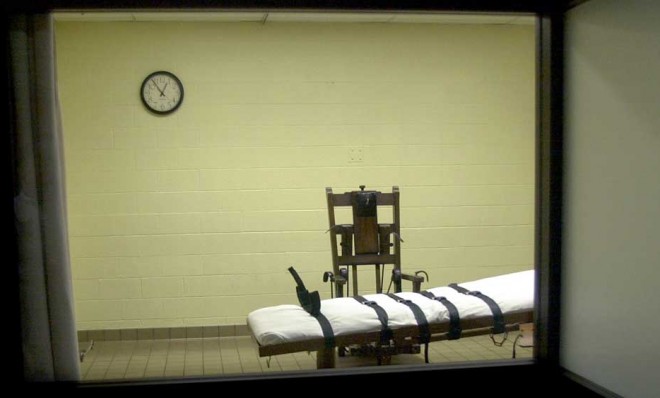The death penalty's hidden injustice
I believe capital punishment is a just sentence in many cases. But it can also be used as a cudgel to hurt the innocent

A free daily email with the biggest news stories of the day – and the best features from TheWeek.com
You are now subscribed
Your newsletter sign-up was successful
Dzhokhar Tsarnaev's mother says the alleged Boston bomber is up and walking — and proclaiming his innocence.
In what I must say is a particularly nauseating statement given all that we know about her son's behavior on the day of the bombing and in the manhunt that followed, the young man's mother told the AP that she "could just feel that he was being driven crazy by the unfairness that happened to us, that they killed our innocent Tamerlan."
As tough as it is to hear talk like this from Tsarnaev's mother, it would be even more unpleasant to have to listen to such talk from the alleged bomber himself. He will have that opportunity, though, should he seek his day in court. However, to do so, the young man will probably have to be willing to die if the jury does not believe him, because the government has charged the young man with a slew of crimes that are punishable by death.
The Week
Escape your echo chamber. Get the facts behind the news, plus analysis from multiple perspectives.

Sign up for The Week's Free Newsletters
From our morning news briefing to a weekly Good News Newsletter, get the best of The Week delivered directly to your inbox.
From our morning news briefing to a weekly Good News Newsletter, get the best of The Week delivered directly to your inbox.
If the young man cares about living, his lawyer will almost certainly instruct him to cut a deal with the prosecution (if one is offered) and plead guilty to all of the offenses and accept life without the possibility of parole. Most Americans would likely be satisfied with this outcome, and we will move on. This series of events would provide Americans with a perspective on the positive side of the potential to use the death penalty. But even as we watch this likely series of events play out, another man — this one truly innocent — has a story that reminds us of just how complicated capital punishment really is.
More than 1,300 people have been executed in the U.S. since 1976. Another 3,100 are presently on death row. The vast majority of those individuals are guilty of truly heinous crimes. Surely some of that lot deserve empathy, but to expend meaningful energy mourning the execution of a man or woman who is in fact actually guilty of a capital crime in the United States strikes me as a bit absurd. We can have an argument about whether it is moral or right for a country as developed as the United States to continue to permit the practice, but that is a conversation that takes place at the abstract level.
But this abstract debate ignores bigger and less explored dilemmas created by the death penalty. The first is obviously human fallibility. Put simply, innocent people have been convicted of capital crimes and put to death in the United States of America. In the vast majority of those cases, no one acted in bad faith. The jury just got it wrong. In a legal culture that adopted and embraced Blackstone's formulation — "better that 10 guilty persons escape than that one innocent suffer" — the fact that we can get it wrong is deeply problematic, even if, like me, you believe there are crimes for which death is an appropriate sentence and that juries are neither cruel nor inhumane in imposing that sentence on the party they believe perpetrated such an offense.
Now, let's turn to the "Norfolk Four." Their story is long and complicated, but basically, four sailors in Virginia confessed to a rape/ murder that they had nothing to do with after extended questioning and repeated reminders that they could face the death penalty if they refused to admit to their alleged crimes. Later, the true killer came forward and basically said he had no idea who the four fellows the police were talking to him about were. I bring this up because one of those individuals, Eric C. Wilson, still has not been totally exonerated (he is out of prison but he still has to register as a sex offender) and last month filed an appeal to the Supreme Court of the United States asking the high court to permit him a venue through which to clear his name, once and for all.
A free daily email with the biggest news stories of the day – and the best features from TheWeek.com
To borrow from a phrase uttered by one of the attorneys interviewed in the Frontline special on the Norfolk Four, death changes everything. In the coming months, we will see, up close, the upside and downsides of what the mere existence of the death penalty allows law enforcement to do in the stages before the trial even starts.
Jeb Golinkin is an attorney from Houston, Texas. You can follow him on twitter @jgolinkin.